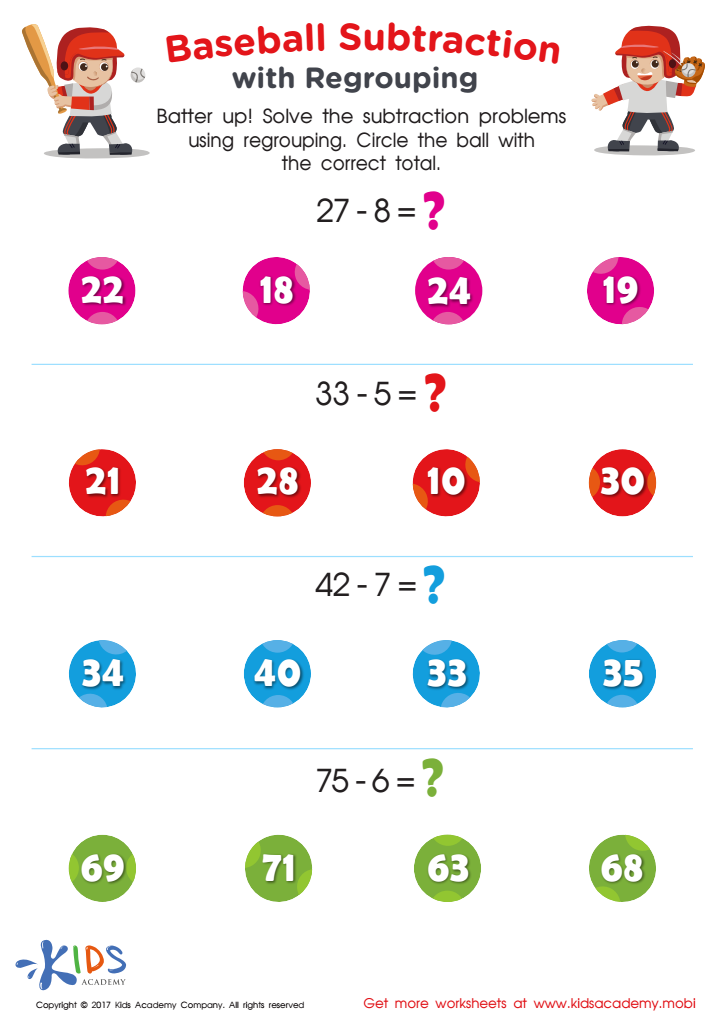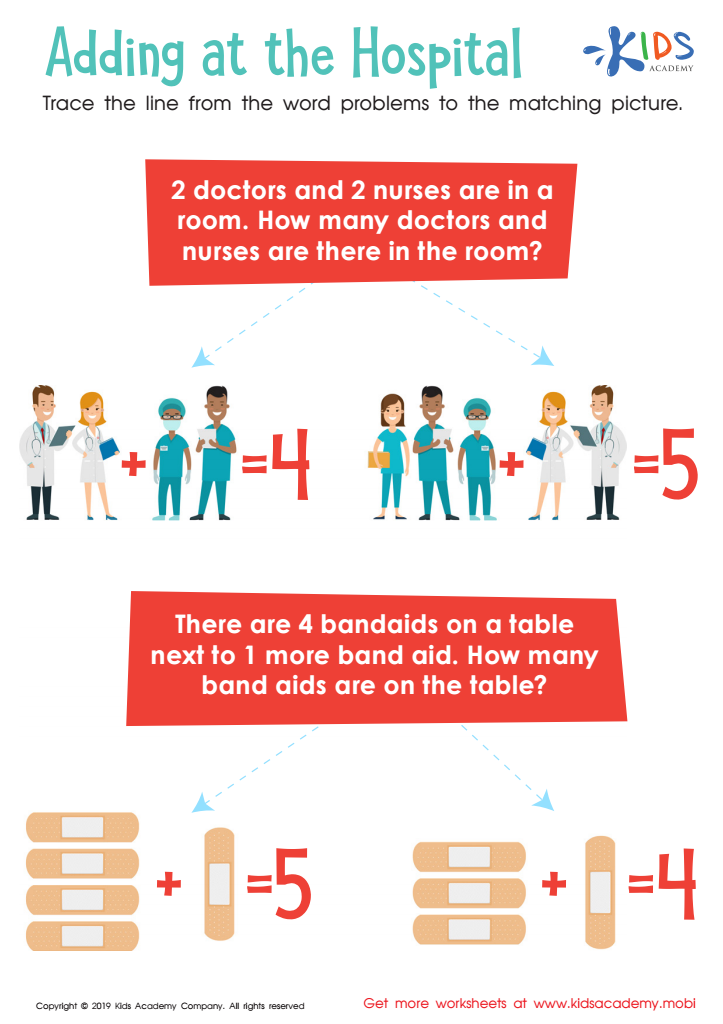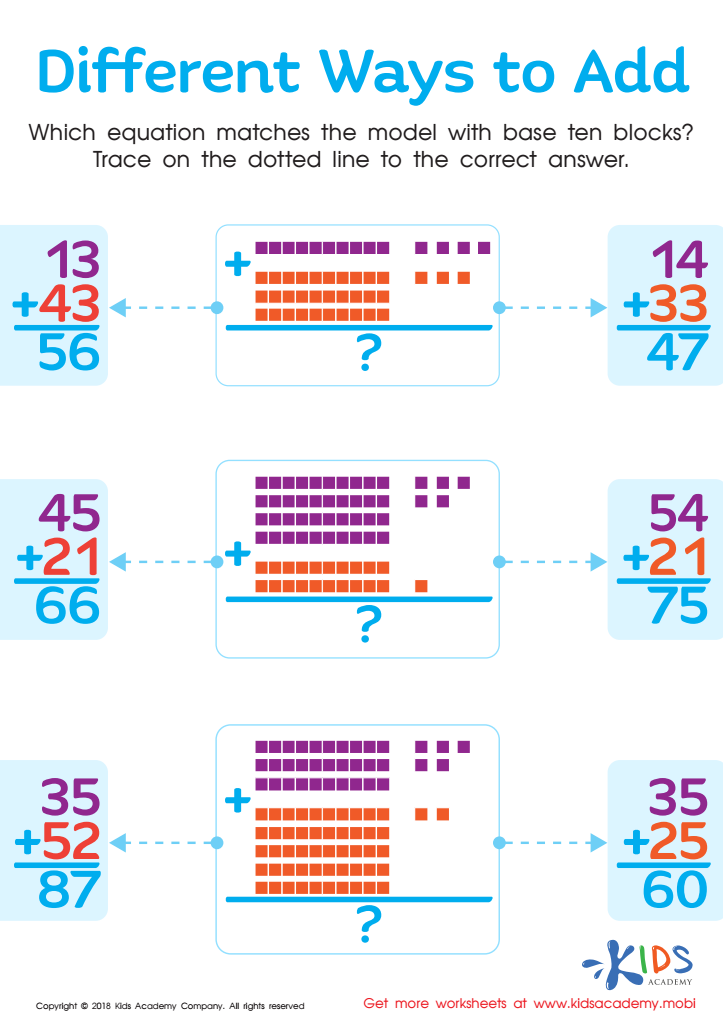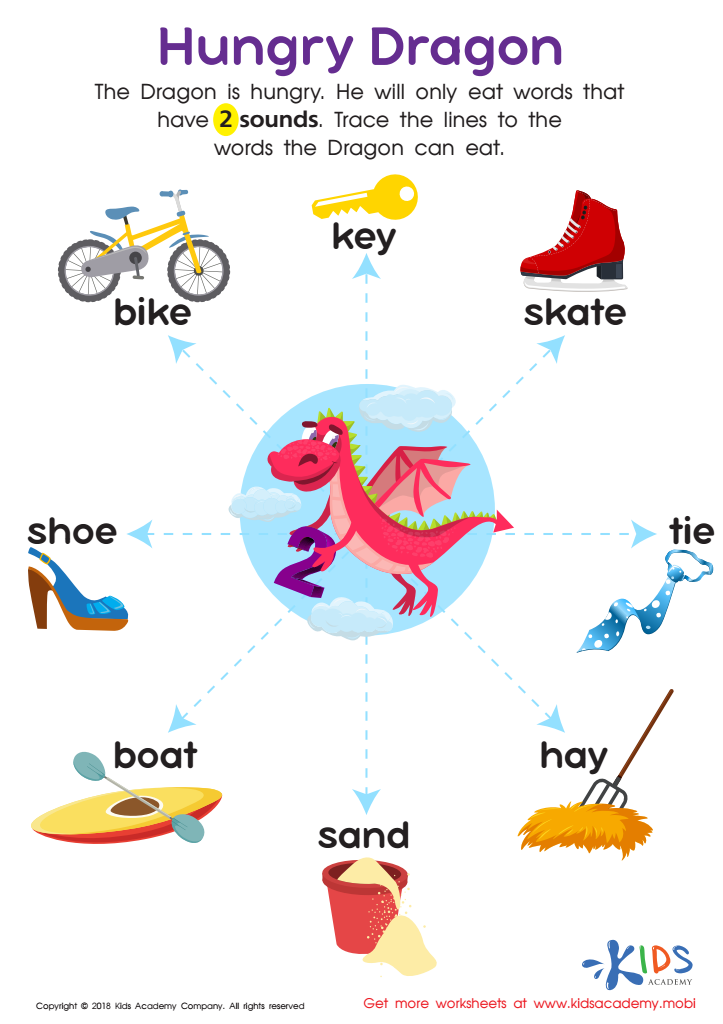Mental math practice Normal Worksheets for Ages 5-7
6 filtered results
-
From - To
Enhance your child’s cognitive abilities with our meticulously designed Mental Math Practice worksheets for ages 5-7. These engaging and educational worksheets make mastering basic arithmetic skills fun and interactive. Focused on building strong number sense, they help young learners quickly and efficiently solve math problems in their heads. Ideal for both classroom and at-home practice, our printable worksheets cover essential concepts like addition, subtraction, and number patterns. Boost your child's confidence and academic performance with consistent mental math practice. Visit Kids Academy to access a wide variety of expertly crafted worksheets tailored to fuel your child’s love for learning math.


Subtraction With Regrouping for 2nd Grade Worksheet


7 Continents and 7 Seas Worksheet


Adding at the Hospital Worksheet


Tricky Problems Worksheet: Part 2


Different Ways to Add Worksheet


Hungry Dragon Worksheet
Mental math practice is crucial for children aged 5-7 as it lays a solid foundation for their overall mathematical development, benefiting them in both academic and everyday life contexts. Firstly, engaging young kids in mental math helps improve their number sense, enabling them to understand and manipulate numbers more intuitively. This early growth fosters confidence in handling arithmetic problems, promoting a positive attitude towards math throughout their education.
Developing mental math skills also enhances cognitive functions like memory, concentration, and problem-solving. These skills are transferrable to other subjects and are vital for overall intellectual growth. Additionally, when children practice mental calculations, they develop quicker decision-making abilities and improve their capacity to think logically and abstractly.
Moreover, for parents and teachers, mental math practice at this age offers an opportunity to make learning interactive and enjoyable. Playing games and using real-world applications make math fun and relevant, which helps maintain children's interest and curiosity in learning. Providing a strong background in mental math ensures that children can perform fundamental calculations with ease, even under time constraints, giving them an advantage in both classroom activities and standardized tests.
By fostering these skills early on, parents and teachers equip children with essential tools for their future educational journeys and everyday problem-solving, ultimately promoting a lifelong understanding and appreciation of mathematics.

 Assign to My Students
Assign to My Students









.jpg)










